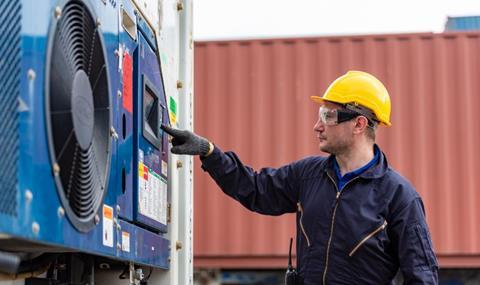
Energy management technologies will have more influence over temperature-controlled logistics in the next 10 years than automation, blockchain or changes to demand, according to cold chain professionals.
In a survey of more than 100 individuals across the sector, respondents chose energy management technologies as the greatest influence on how temperature-controlled logistics will operate in the coming decade.
Automation was second.
Tom Southall, Cold Chain Federation (CCF) executive director, said the results reflected the expectation that energy costs would remain high and also the need to move towards net zero: “Whether it be electrification of refrigerated vehicles, harnessing the power of renewables or thinking differently about energy storage and reusing the heat from our warehouses, the opportunities to save costs while meeting customer requirements and increasingly stringent regulations, are becoming the imperative,” he said.
The findings were contained in CCF’s annual cold chain report, which also found that the impact of ending the red diesel entitlement on temperature-controlled transport had been extreme: there was an extra £73m in the cost of fuel duty in 2023, from £153m last year to £226m.













